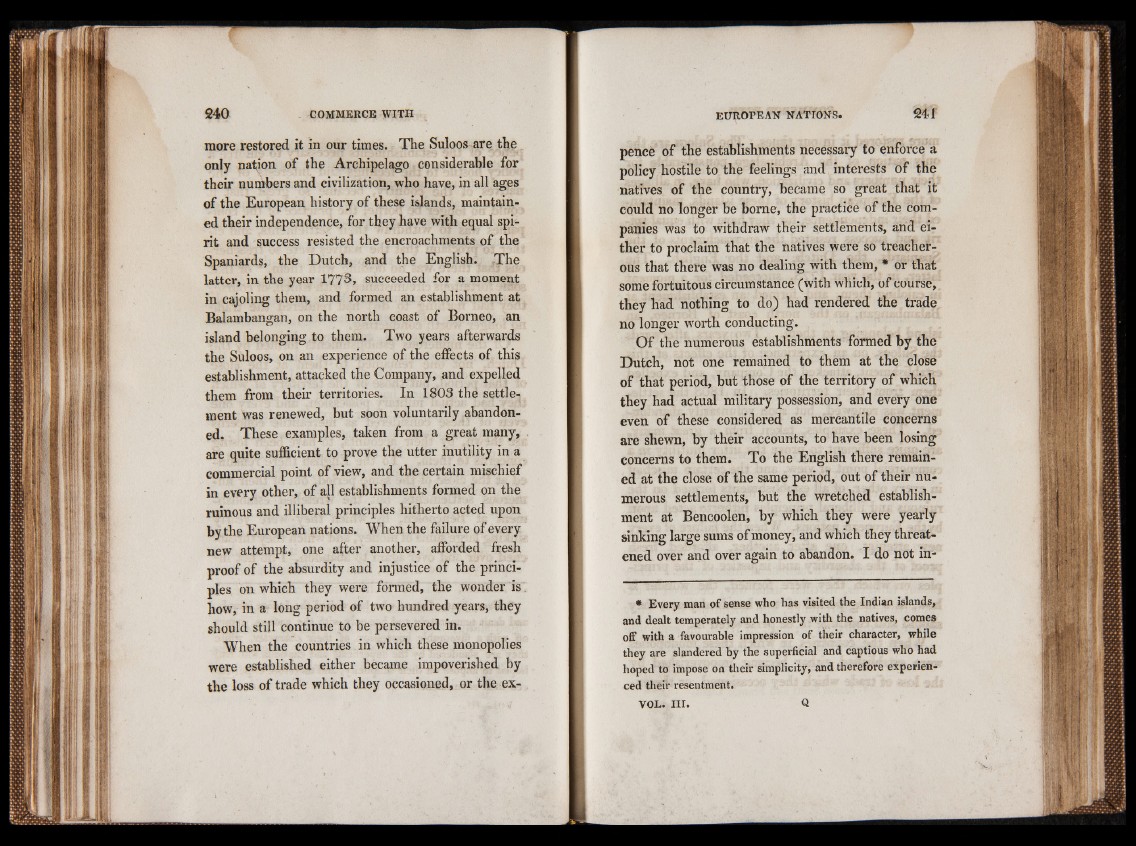
more restored it in our times. The Suloos are the
only nation of the Archipelago considerable for
their numbers and civilization, who have, in all ages
of the European history of these islands, maintained
their independence, for they have with equal spirit
and success resisted the encroachments of the
Spaniards, the Dutch, and the English. The
latter, in the year 1773> succeeded for a moment
in cajoling them, and formed an establishment at
Balambangan, on the north coast of Borneo, an
island belonging to them. Two years afterwards
the Suloos, on an experience of the effects of this
establishment, attacked the Company, and expelled
them from their territories. In 1803 thé settlement
was renewed, but soon voluntarily abandoned.
These examples, taken from a great many,
are quite sufficient to prove the utter inutility in a
commercial point of view, and the certain mischief
in every other, of all establishments formed on the
ruinous and illiberal principles hitherto acted upon
by the European nations. When the failure of every
new attempt, one after another, afforded fresh
proof of the absurdity and injustice of the principles
on which they were formed, the wonder is.
how, in a long period of two hundred years, they
should still continue to be persevered in.
When the countries in which these monopolies
were established either became impoverished by
the loss of trade which they occasioned, or the expencè
of the establishments necessary to enforce a
policy hostile to the feelings and interests of the
natives of the country, became so great that it
could no longer be borne, the practice of the companies
was to withdraw their settléments, and either
to proclaim that the natives were so treacherous
that there was no dealing with them, * or that
some fortuitous circumstance (with which, of course,
they had nothing to do) had rendered the trade
no longer worth conducting.
Of the numerous establishments formed by the
Dutch, not one remained to them at the close
of that period, but those of the territory of which
they had actual military possession, and every one
even of these considered as mercantile concerns
are shewn, by their accounts, to have been losing
concerns to them. To the English there remained
at the close of the same period, out of their numerous
settlements, but the wretched establishment
at Bencoolen, by which they were yearly
sinking large sums of money, and which they threatened
over and over again to abandon. I do not in-
* Every man of sense who has visited the Indian islands,
and dealt temperately and honestly with the natives, comes
off with a favourable impression of their character, while
they are slandered by the superficial and captious who had
hoped to impose on their simplicity, and therefore experienced
their resentment.
VOL. III. Q